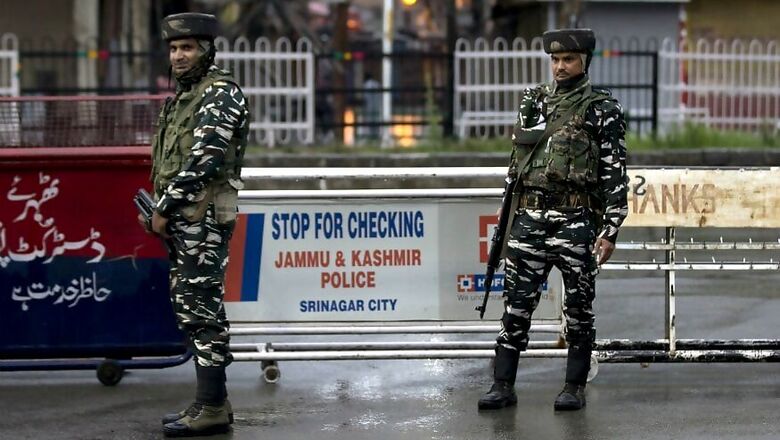
views
New Delhi: The Supreme Court said on Friday that the indefinite shutting down of internet in Jammu and Kashmir was impermissible and repeated prohibitory orders banning large assemblies was an abuse of power as it asked the J&K administration to review the restrictions that have been imposed in the region for the last five months.
The government had imposed a communications lockdown in August as it aimed to control unrest after abrogating Article 370 of the Constitution, stripping the Muslim-majority region of its autonomy.
Ruling that the right to access internet is constitutionally protected and internet can be shut down only in exceptional circumstances, a three-judge bench said an indefinite suspension of the internet was a violation of the country's telecoms rules.
It directed authorities to review all curbs in Kashmir in a week's time.
The internet shutdown in Kashmir, which has been on for more than 150 days, is the longest such outage in any democracy, according to digital rights group Access Now. The government has argued that the blackout in Kashmir was essential to maintain calm as separatists funded by Pakistan would try to foment trouble.
The bench also ordered the Jammu and Kashmir administration to put in public domain all orders that can then be challenged in a court of law. Internet freedom activists said the court's decision should enable more scrutiny of suspensions.
The Centre has frequently used internet shutdowns as a tool to quell dissent in troubled parts of the country. Last month, authorities imposed an internet clampdown in parts of the capital and in areas of Assam and Uttar Pradesh as protests raged against a new citizenship law that critics see as discriminatory.
The court, coming down heavily on the government for the repetitive use of Section 144, also held that there needs to be an emergency for the invocation of the provision and “mere expression of disagreement cannot be a ground”.
“Repetitive orders under Section 144 of CrPC will amount to an abuse of power. Reasons have to be given for imposing Section 144 and magistrate should balance rights of individual with state interest when issuing such orders,” the court said, adding that all orders would also have to be put in public domain.
The Supreme Court was hearing a batch of pleas, including that of Congress leader Ghulam Nabi Azad challenging the restrictions imposed in the erstwhile state of Jammu and Kashmir following abrogation of provisions of Article 370.
The internet blackout and restrictions on movement have severely disrupted the lives of millions and had an impact on everything from college admissions to businesses filing tax returns.
A bench of Justices NV Ramana, R Subhash Reddy and BR Gavai had reserved the judgement on November 27 last year.
Observing that the court can’t dwell into political decisions taken, SC said: “We have to balance liberty and security concerns so that right to life can be secured in best possible manner.” SC added: “The pendulum can't swing in any extreme direction. We are here only here to ensure citizens get liberty and get security.
On November 21, the Centre had justified restrictions after the abrogation of provisions of Article 370 and said that due to the preventive steps taken, neither a single life was lost nor a single bullet fired.
Besides Azad, the apex court had heard the petitions filed by Anuradha Bhasin, Executive Editor of Kashmir Times, and a few intervenors questioning the restrictions.
The Centre had referred to terror violence in the Kashmir Valley and said that for the past so many years terrorists were being pushed through from across the border, local militants and separatist organisation had held the civilians captive in the region and it would have been "foolish" if the government would not have taken preventive steps to secure the lives of citizens.
















Comments
0 comment